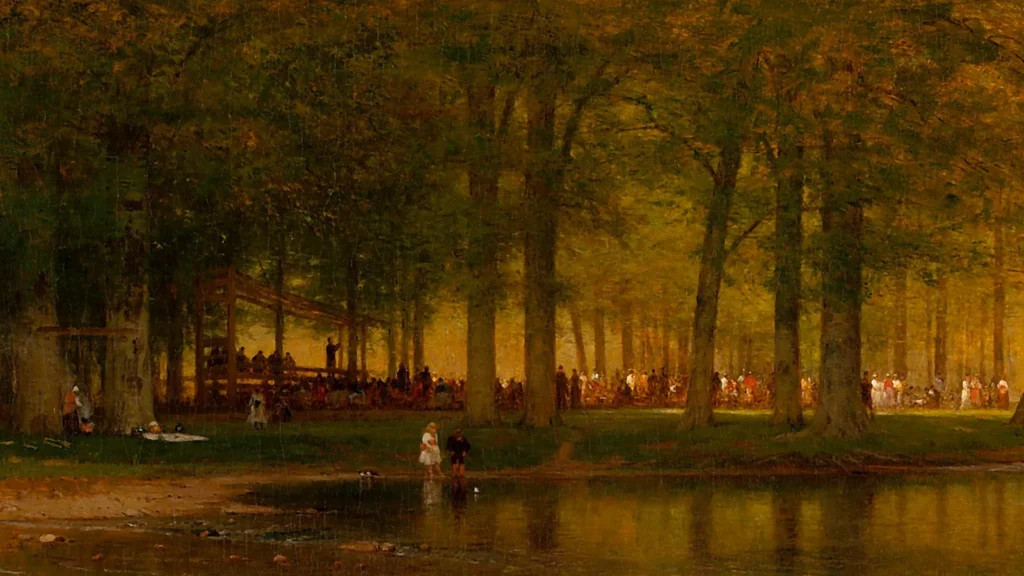
FAIR is a non-profit organization dedicated to providing well-documented answers to criticisms of the doctrine, practice, and history of The Church of Jesus Christ of Latter-day Saints.
FAIR › Scripture Study Resources: Supplement Your Come, Follow Me Study › Study Resources for the Doctrine & Covenants and Church History › Week 20 Seek Ye Earnestly the Best Gifts
DOCTRINE AND COVENANTS 46 – 48

The Lord instructs that Church meetings should be conducted by the Spirit, allowing individuals to feel His presence and peace. Creating an atmosphere of warmth and belonging encourages members and visitors to return, knowing that they are accepted and valued in the Lord’s house.
In Doctrine and Covenants 46:7–33, the Lord lists various spiritual gifts and teaches that they are given not for personal glory, but to uplift and bless others. These gifts, such as the gift of healing, prophecy, and faith, are manifestations of God’s love and serve to strengthen the Church and its members.
The early Saints struggled to recognize true manifestations of the Spirit. Through Joseph Smith, the Lord taught that spiritual gifts are real and should be sought after and used to bless others. Developing these gifts through prayer, faith, and righteous living strengthens the Church community and helps individuals fulfill their divine potential.
Recording personal spiritual experiences helps individuals recognize God’s hand in their lives and strengthens their testimony. Through journaling or sharing stories, individuals preserve faith-building experiences for themselves and their posterity, allowing future generations to learn from their spiritual journeys.
In early 1831, the Church was still in its infancy, with newly baptized members in Kirtland, Ohio, eager to live the restored gospel but lacking experience and guidance. Many converts had come from diverse religious backgrounds, bringing varying expectations about spiritual manifestations.
If you have questions on this week’s reading, please email your questions to us here.
Practical solutions for someone in faith crisis:
Action Step: Identify one spiritual gift you feel you have (or would like to develop) and seek guidance on how to use it to bless others.
Spiritual gifts are given for the benefit of others and to strengthen the Church. When you develop and use these gifts, you fulfill your divine potential and draw closer to the Lord.
Encouraging Thought:
Action Step: Introduce yourself to someone new at Church this week and invite them to sit with you or attend a future activity.
People are more likely to return to Church and feel the Spirit when they feel genuinely welcomed and valued. A friendly environment helps others recognize the love of Christ through you.
Encouraging Thought:
Recording spiritual experiences helps you recognize God’s hand in your life and builds your faith. Over time, your journal will become a source of strength and guidance.
Encouraging Thought:
Keeping a record helps you remember the Lord’s hand in your life. (Doctrine and Covenants 47:1)
Objective: Help learners identify and understand their spiritual gifts and how to use them to bless others.
Activity Steps:
Follow-Up Question: How can recognizing and using your spiritual gifts bring you closer to the Lord?
Objective: Encourage learners to make Church a welcoming place for all.
Activity Steps:
Follow-Up Question: What can you do next Sunday to help someone feel more comfortable at Church?
Objective: Help learners understand the importance of recording spiritual experiences.
Activity Steps:
Follow-Up Question: How can recording your spiritual experiences help strengthen your faith in the future?
Teaching in the Savior’s Way (Guidance for conducting effective Church meetings)
Gospel Topics: Spiritual Gifts (Overview of spiritual gifts)

FAIR is a non-profit organization dedicated to providing well-documented answers to criticisms of the doctrine, practice, and history of The Church of Jesus Christ of Latter-day Saints.
We are a volunteer organization. We invite you to give back.
Donate Now